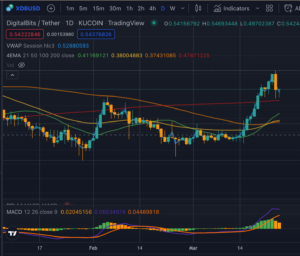With Bitcoin once more on the up, many investors are flocking to the store-of-value asset in these uncertain times in order to protect their wealth. Jack Mallers, CEO of Strike, believes that Bitcoin is not here to replace the dollar, but is a monetary network that stores value and which cuts out intermediaries.
The 29-year-old CEO was invited by the president of El Salvador to bring his payments app company to the Central American country. A country that is in the process of making Bitcoin legal tender.
Strike operates on the Lightning Network and enables users to transact in borderless bitcoin payments. This is ideal for El Salvador, as, according to the World Bank, it currently receives an estimated 24.1% of GDP by way of remittances from citizens working in other countries.
Nayib Bukele, the president of El Salvador, had reached out to Mallers after seeing the success garnered by the Strike payments app. At the time, according to an article today on Business Insider, Bukele was looking for advice on financial inclusion, emerging markets and more freedoms for the individual.
Mallers said:
“I was never tasked to build anything in particular for them. It was more just an advisory type of conversation where they viewed me as an expert on the topic. And I have very strong opinions,” Mallers said. “And through that process, they ended up deciding on making bitcoin legal tender.”
Maller spoke about his views on what is currently happening in the monetary system. It’s his belief that the Federal Reserve accelerated inflation due to the massive amounts of currency that it printed into existence. He believes that this was a “theft of wealth”, and had vastly decreased the purchasing power of those using the dollar.
He explained how this was especially deleterious for those who used the dollar outside of the US, and who didn’t benefit from stimulus checks:
“El Salvador, in particular, operates on the United States dollar, but how many stimulus checks did the citizens of El Salvador get, zero, right? And so they are tremendously impacted by monetary expansion from the Federal Reserve. And so how do you solve that? It’s a problem that humanity has faced ever since the conception of central banks.”
The International Monetary Fund (IMF) is very against the idea of El Salvador adopting bitcoin, saying that domestic prices could become unstable. However, El Salvador wants to use bitcoin alongside the dollar rather than replace it.
The IMF also follows the government/banking institutions line of possible “loopholes” that could promote tax evasion and money laundering, even though this is estimated by Chainalysis to be only around 2% of such activity on bitcoin as compared with the same activity globally with fiat currencies.
Disclaimer: This article is provided for informational purposes only. It is not offered or intended to be used as legal, tax, investment, financial, or other advice.




















